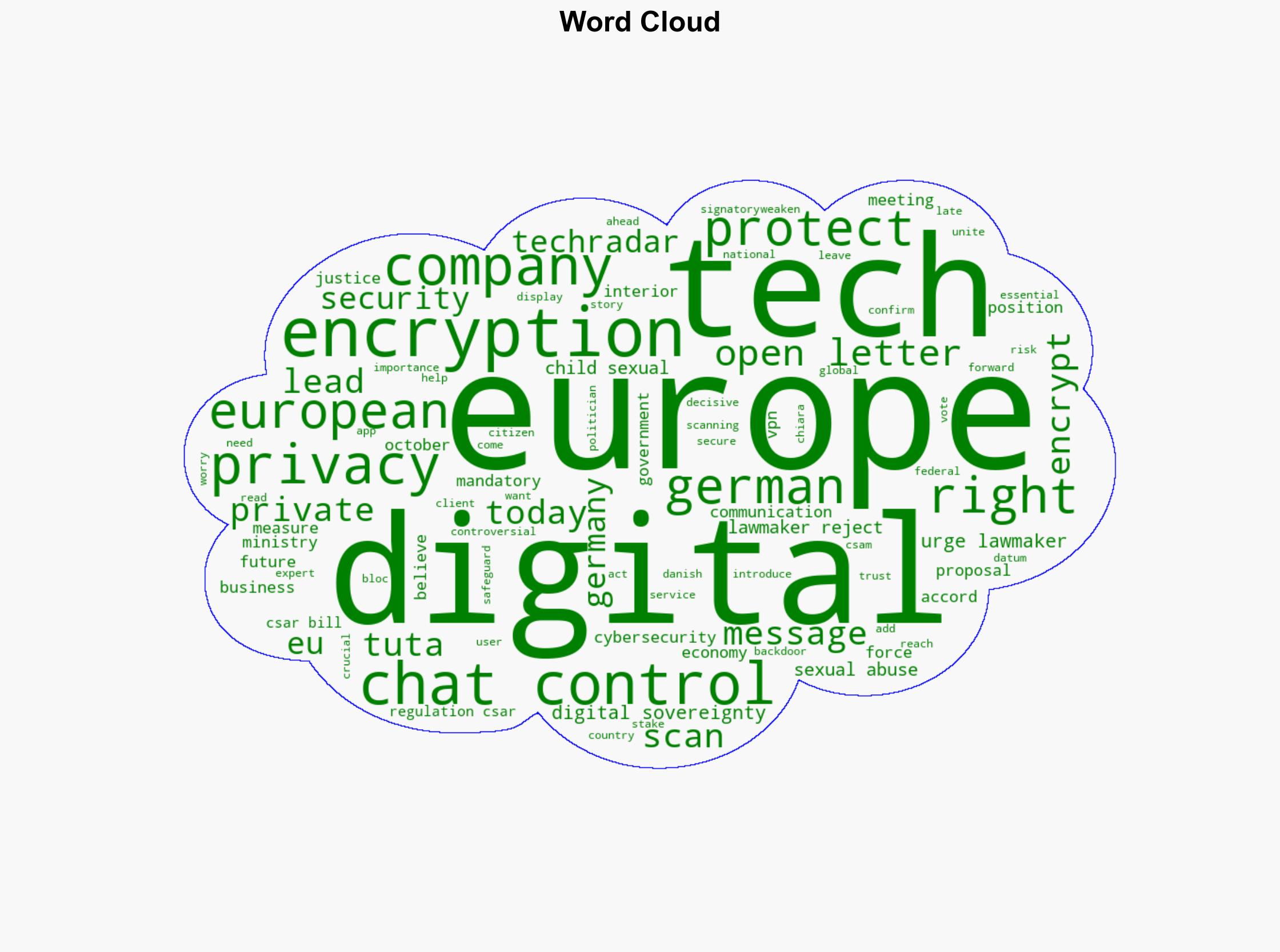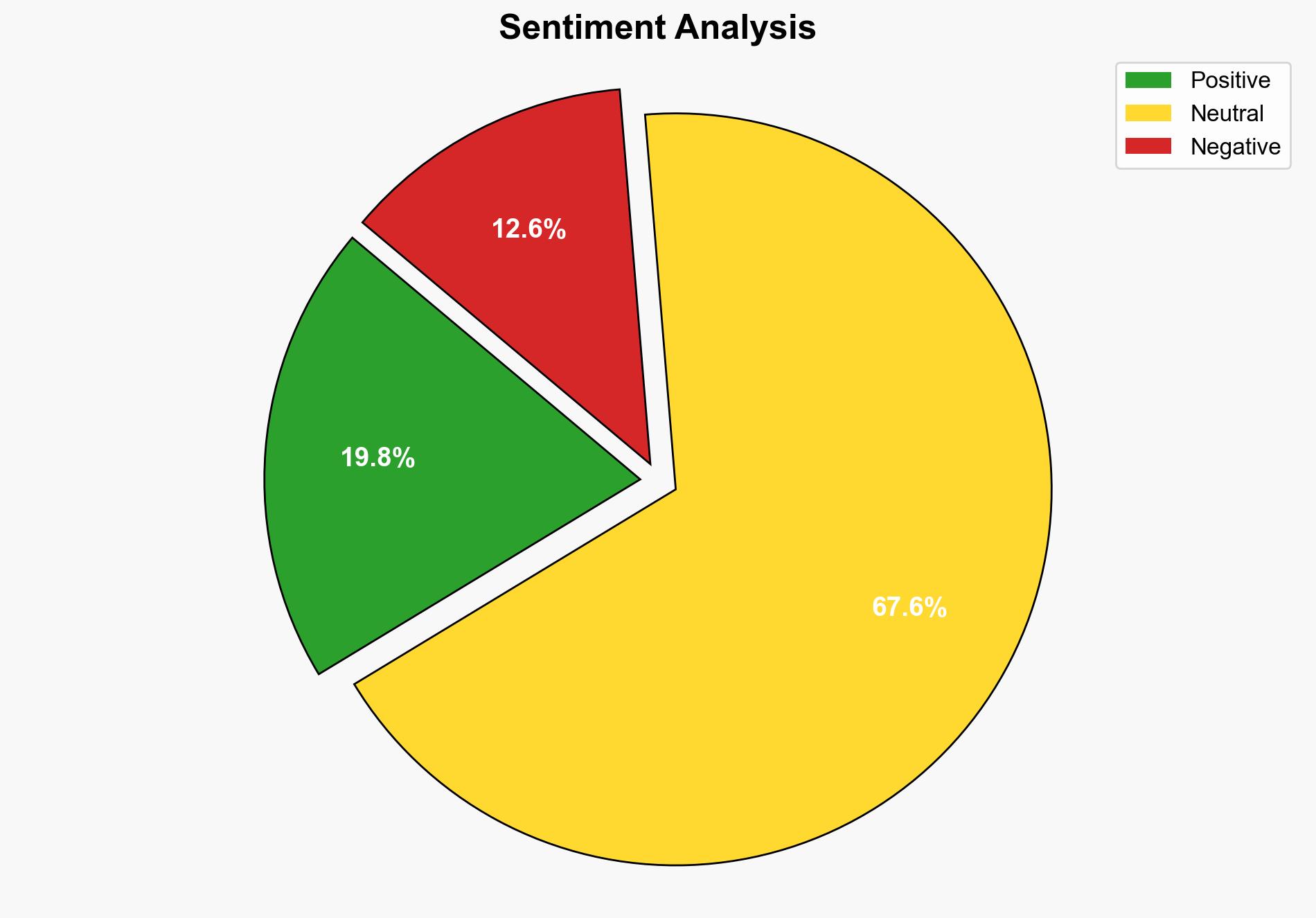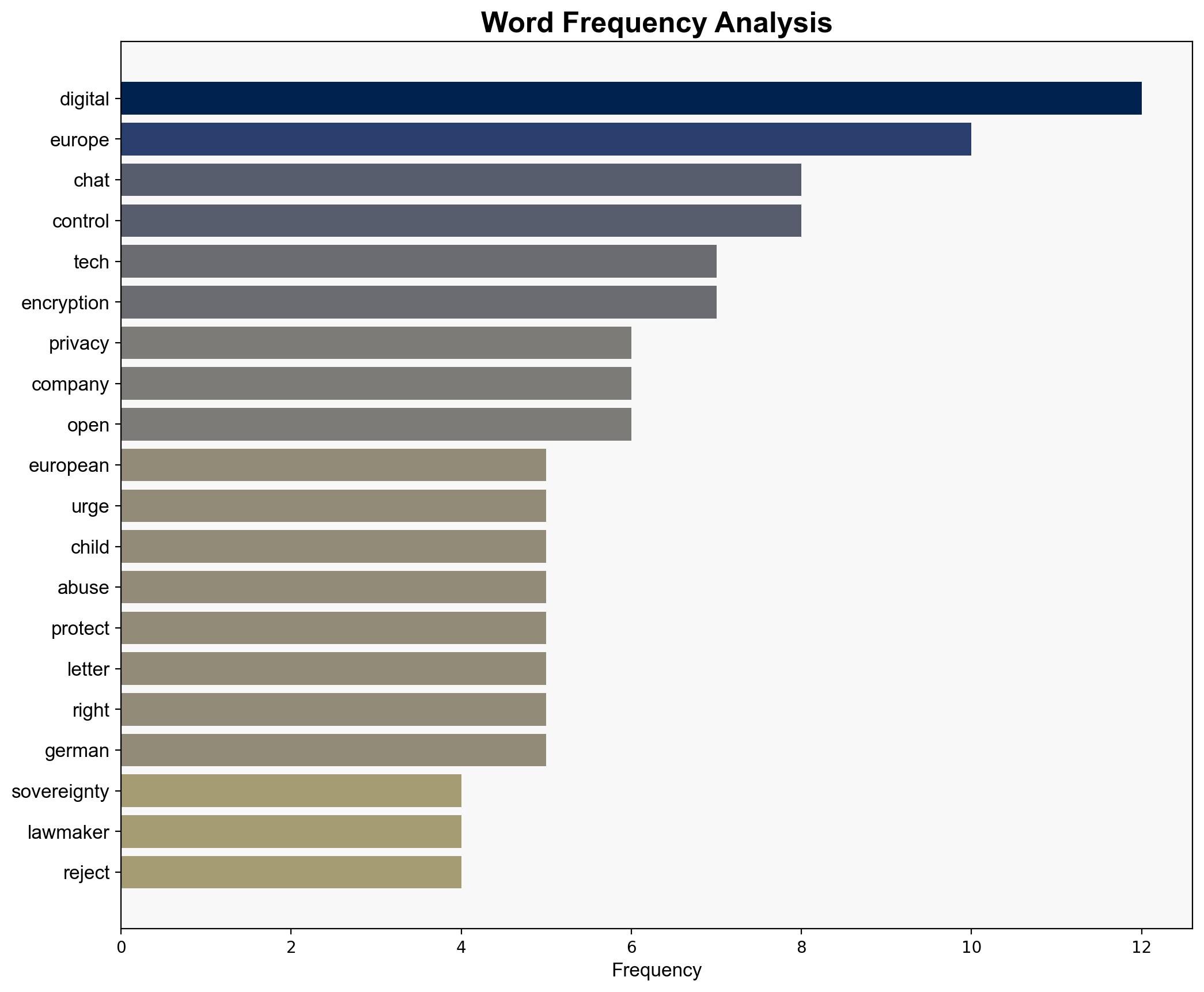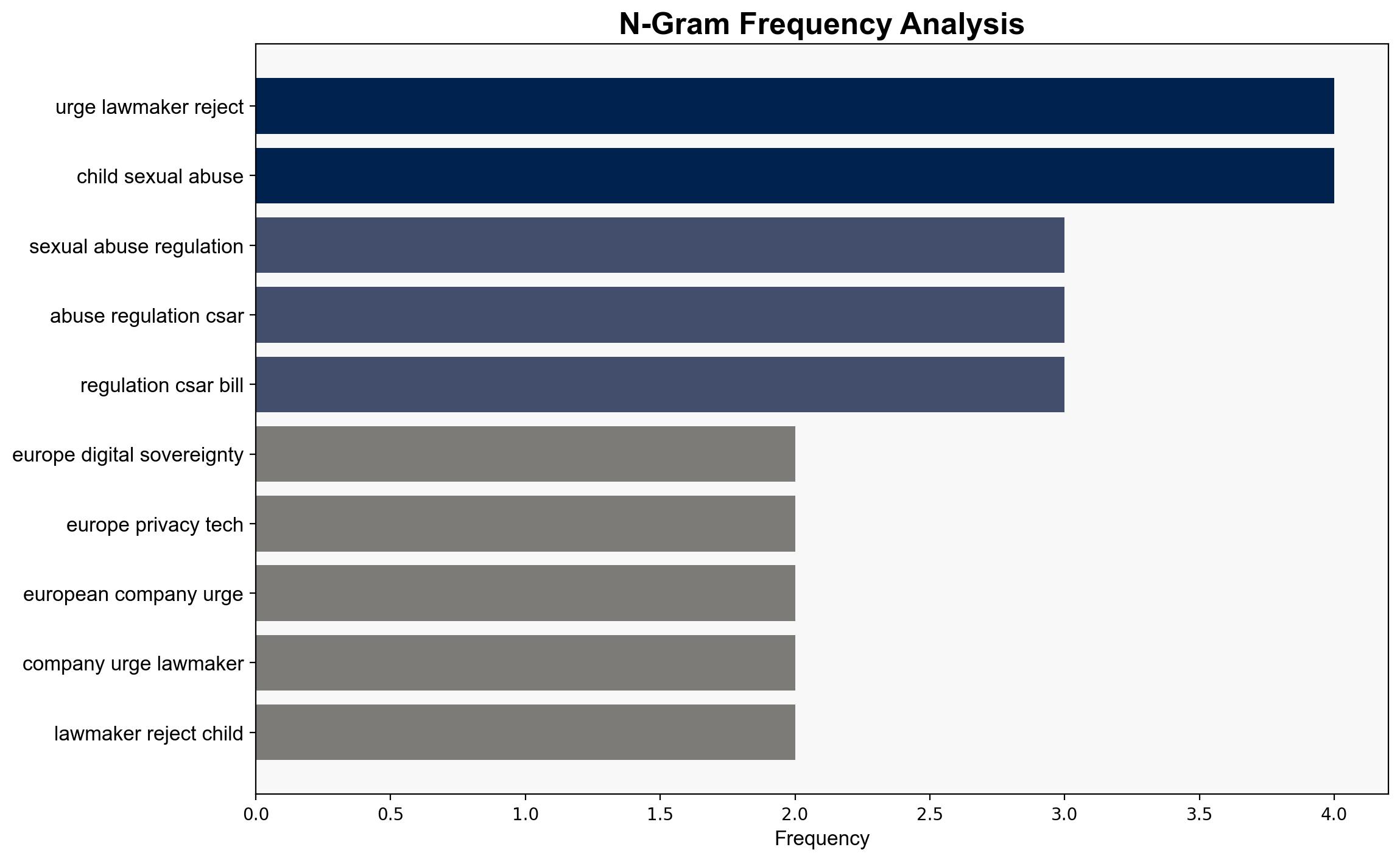Europes digital sovereignty at stake Europe’s privacy-first tech unites against Chat Control – TechRadar
Published on: 2025-10-07
Intelligence Report: Europe’s Digital Sovereignty at Stake – Europe’s Privacy-First Tech Unites Against Chat Control
1. BLUF (Bottom Line Up Front)
The strategic judgment is that the proposed Chat Control regulation poses a significant threat to Europe’s digital sovereignty and privacy standards. The hypothesis that the regulation will undermine encryption and digital security is better supported. Confidence level: High. Recommended action: European lawmakers should reject the CSAR bill and seek alternative measures that balance child protection with privacy and security.
2. Competing Hypotheses
Hypothesis 1: The Chat Control regulation will undermine encryption, leading to weakened digital security and loss of digital sovereignty in Europe.
Hypothesis 2: The Chat Control regulation will effectively enhance child protection without significantly impacting encryption or digital sovereignty.
Using the Analysis of Competing Hypotheses (ACH) 2.0, Hypothesis 1 is better supported due to the broad opposition from privacy-focused tech companies and experts who argue that mandatory scanning will create vulnerabilities.
3. Key Assumptions and Red Flags
Assumptions:
– Encryption is essential for maintaining digital sovereignty and security.
– The proposed regulation will mandate scanning that weakens encryption.
Red Flags:
– Lack of clear evidence on how the regulation will balance privacy and security.
– Potential bias from tech companies with vested interests in maintaining strong encryption.
4. Implications and Strategic Risks
The implementation of Chat Control could lead to increased vulnerability to cyberattacks, as weakened encryption may be exploited by malicious actors. Economically, it could deter tech companies from operating in Europe, impacting the digital economy. Geopolitically, it may strain relations with countries prioritizing privacy and digital rights. Psychologically, it could erode public trust in digital communications.
5. Recommendations and Outlook
- Reject the CSAR bill in its current form and develop a balanced approach that protects children while preserving encryption.
- Engage with tech companies and cybersecurity experts to design proportionate child protection measures.
- Scenario Projections:
– Best Case: A revised regulation that enhances child protection without compromising encryption.
– Worst Case: Implementation of Chat Control leading to widespread security breaches and loss of digital sovereignty.
– Most Likely: Ongoing debate and potential revisions to the regulation before any implementation.
6. Key Individuals and Entities
– Patrick Breyer, MEP, German Pirate Party
– Proton, NordVPN, Tutanota, Element (companies opposing the regulation)
7. Thematic Tags
national security threats, cybersecurity, digital sovereignty, privacy rights, European Union legislation





